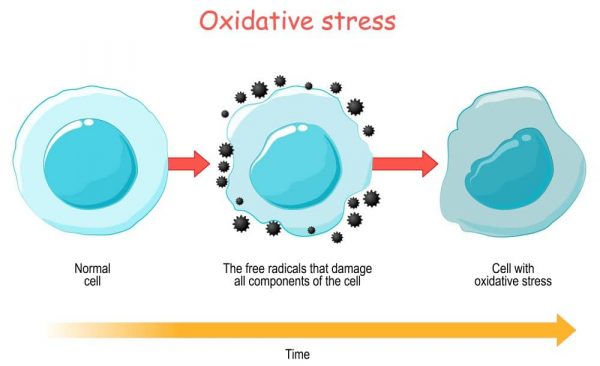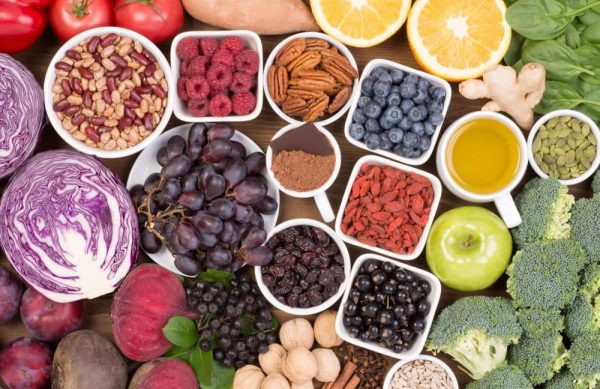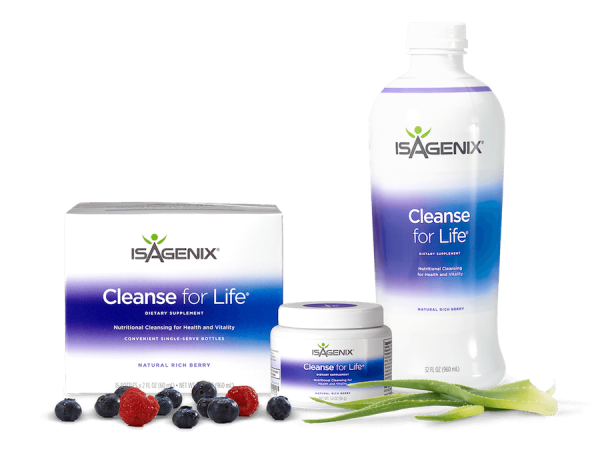The Importance of Antioxidants and How to Include More of Them in Your Daily Diet
Have you ever wondered what gives fruits and vegetables their rich, vibrant hues? From berries to watermelon to tomatoes to kale and beets, antioxidants can be found in fruits, vegetables, and a variety of whole, unprocessed foods.
These powerful molecules that give foods their vibrant hues boast a variety of health benefits and are an important part of a healthy diet. Here, we’ll look at what antioxidants are, how to obtain them in your diet, the most antioxidant-rich foods, and the benefits of antioxidants.
What Are Antioxidants?
Antioxidants are molecules that can help slow or prevent damage to cells by fighting free radicals, unstable atoms responsible for creating damage, and oxidation in the body. Antioxidants help neutralize free radicals and support overall health.
What Is Oxidative Stress?
If free radicals are unable to be removed efficiently by the body, oxidative stress may occur, decreasing body function and harming cells.
Oxidative stress is linked to various health conditions, including:
- Vision issues
- Numerous health issues
- An increase in enzymes that generate free radicals
- Excessive release of copper ions or free iron
- A disruption of electron transport chains
Several factors influence the production of free radicals in the body. Our bodies experience oxidative stress from internal and external factors daily as a result of:
- Smoking
- Environmental pollution
- Indoor pollutants
- UV exposure
- Radiation
- Industrial solvents
- Ozone
- Excessive exercise
- Mitochondrial activity
- Inflammation
- Injury
- Heavily processed foods, artificial sweeteners, certain additives, and dyes, trans fats
- Exposure to pesticides, chemicals, or drugs
Where Do We Get Antioxidants From?
Antioxidants can be obtained from natural or artificial sources. Certain plant-based foods are especially rich in antioxidants.
Antioxidants produced by the body are known as endogenous antioxidants. also produces some antioxidants, known as endogenous antioxidants. Antioxidants that come from outside sources are called exogenous.
Is One Antioxidant Better Than the Rest?
Each antioxidant offers unique functions, making it important to eat a wide range of colorful fruits, vegetables, and antioxidant-rich foods.
Antioxidants are divided into two categories: water-soluble or fat-soluble. Vitamin C is an example of a water-soluble antioxidant. Vitamin E is a fat-soluble antioxidant.
Even though different antioxidants have certain functions and work in different areas of the body, they communicate and work synergistically with one another. They act as a team to defend our bodies against free radicals and support overall health. A balanced, healthy diet full of whole, unprocessed foods will likely supply you with an excellent array of antioxidants.
What Are the Benefits of Antioxidants?
Antioxidants offer a range of potential benefits, such as:
- Protect cells against free radical damage
- Reduce oxidative stress
- Support mental health
- Support brain health
- Aging support
- Eye health support
What Are the Types of Antioxidants?
Examples of well-known antioxidants include:
- Vitamin A
- Vitamin C
- Vitamin E
- Selenium
- Lycopene
- Lutein
- Zeaxanthin
- Flavonoids
- Catechins
- Polyphenols
Food Sources of Antioxidants
Fruits and vegetables with vibrant hues are often some of the best sources of antioxidants.
Some of the most well-known dietary sources of antioxidants include:
- Pomegranates
- Eggs
- Oranges
- Bell peppers
- Berries
- Leafy greens
- Nuts and seeds
- Mangoes
- Watermelon
- Tomatoes
- Papayas
- Eggplants
- Brazil nuts
- Coffee
- Dark chocolate
- Green and black teas
- Red grapes
- Wine
- Carrots
- Goji berries
- Apples
- Broccoli
- Cauliflower
Specific Antioxidant Sources
- Carotenoids – Beta-carotene and lycopene can be found in turnips, mangoes, kale, carrots, bell peppers, collard greens, peaches, oranges, sweet potatoes, winter squash, pumpkin, spinach, tangerines, watermelon, tomatoes, asparagus, apricots, oranges, beets, and grapefruit
- Vitamin C – Brussels sprouts, broccoli, cantaloupe, grapefruit, cauliflower, leafy greens, kale, honeydew, kiwi, snow peas, lemon, orange, papaya, strawberries, tomatoes, sweet potato, all colors of bell peppers
- Vitamin E – Avocado, almonds, Swiss chard, peanuts, leafy greens, red peppers, boiled spinach, sunflower seeds
- Selenium – Beef, Brazil nuts, shellfish, fish, barley, poultry, brown rice
- Phenolic Compounds – Anthocyanins (blueberries and strawberries), quercetin (onions, apples, red wine), coumaric acid (berries and spices), catechins (berries, tea, cocoa), resveratrol (peanuts, red and white wine, grapes, berries)
- Zinc – Oysters, shrimp, beef, poultry, sesame seeds, chickpeas, pumpkin seeds, lentils, fortified cereals, cashews
How Does Cooking Affect Antioxidants?
Some antioxidants are destroyed or diminished during the cooking process while others may become easier for our bodies to use (more bioavailable).
For instance, lycopene, the antioxidant responsible for the vibrant red color of tomatoes, becomes more bioavailable when heated.
On the other hand, zucchini, peas, and cauliflower appear to lose a significant amount of their antioxidant activity when cooked.
Ultimately, the best approach may be consuming a balanced diet that features a variety of antioxidant-rich fruits and vegetables and enjoying them in both cooked and raw forms.
Tips for Getting More Antioxidants in Your Diet
To naturally increase your intake of antioxidants, try these tips:
- Drink a cup of black, matcha, or green tea every day.
- Make your plate as colorful as possible at mealtime (think a grilled chicken breast seasoned with spices and herbs served with a side of berries, mixed, steamed veggies, and a fresh salad topped with shaved beets, carrots, and peas.
- Include at least one fruit or vegetable with every meal or snack.
- Season your food naturally with herbs and spices such as oregano, clove, cinnamon, ginger, turmeric, and cumin.
- Snack on sunflower seeds, dried fruit, nuts, and seeds.
- Try adding an antioxidant supplement to your routine (always check with your healthcare provider before adding new supplements to your routine)
How to Choose an Antioxidant Supplement
While research has not pinpointed a particular antioxidant that should be taken regularly as a supplement, you may want to consider an antioxidant supplement as part of your dietary routine. A supplement featuring a variety of antioxidants may help fill in any gaps in your diet and help support overall health.
When considering an antioxidant supplement, look for a high-quality supplement from a reputable brand. Make sure the supplement is:
- Free of laxatives or harsh additives
- Naturally flavored
- Easy to incorporate into your routine
Antioxidant Supplements from Isagenix Cleanse for Life
This scientifically formulated, proprietary blend of antioxidants, botanicals, and natural detoxifying herbs was created to help support the body’s natural cleansing mechanisms and help:
- Eliminate stubborn fat
- Protect against oxidation
- Protect against toxins
- Support a healthy metabolism
- Nourish the body
- Supply the body with powerful antioxidants and botanicals
Rather than relying on harsh laxatives or additives that can deplete nutrients from the body, Cleanse for Life features vitamins, minerals, and antioxidants that nourish and protect the body while naturally supporting the body’s cleansing process.
With natural flavors and convenient packaging, Cleanse for Life is an ideal way to nourish your body with antioxidants, even on the busiest days.
To jumpstart your weight loss and wellness efforts, Cleanse for Life can also be found as part of a comprehensive wellness system.
Final Thoughts
Free radicals and oxidative stress harm the cells in the body and have been linked to a variety of health conditions. Antioxidants are a powerful way to combat free radical damage and support overall health.
Aim to consume a diet rich in colorful fruits and vegetables and low in processed foods. What are your favorite ways to include antioxidants in your diet? We’d love to hear from you in the comments.













